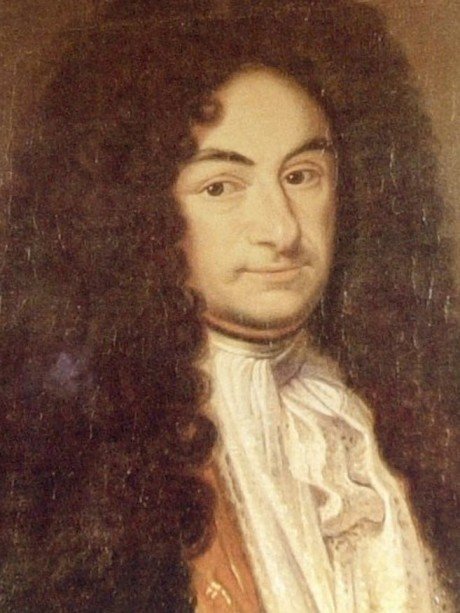celebrates Gottfried Wilhelm Leibniz - mathematician, philosopher, inventor
Gottfried Wilhelm Leibniz could have celebrated his 372th birthday today. Leibniz was a mathematician, philosopher and inventor - a true universal genius.
Gottfried Wilhelm Leibniz, born July 1, 1646 - one or the other may think of biscuits, the Leibniz biscuit. But that does not do the scholar wrong. Because he was a mathematician, philosopher and inventor - just a true universal genius.
Leibniz, who could celebrate his 372th birthday today, became famous as a mathematician, above all as the discoverer of differential calculus. But that sort of arithmetic was not enough for such a universal genius of the 17th century. Leibniz was also a philosopher, ethnologist and linguist.
In the years 1796/97 he wrote a polemic against the then common thesis that Scandinavia was the original homeland of the Germans and the ancient Swedes had spoken the original form of the Germanic languages. He also did not believe in the biblical idea that the original language of all people was Hebrew. He found Sanskrit, which was later recognized as a classical Indo-European language, more exciting.
In Hanover Leibniz worked for 40 years as a court counselor and librarian of the Guelph Duke. The Gottfried Wilhelm Leibniz Library keeps the estate of the great thinker. His manuscripts - fabulous 200,000 pages - are stored in an air-conditioned treasury behind thick vault doors. "He woke up in the morning writing and fell asleep in the evening," says the director of the Leibniz Archives, Michael Kempe, about the universal genius
372nd birthday of Gottfried Wilhelm Leibniz
Scientists in Hanover, Potsdam, Münster and Berlin have been working on a complete edition of the typefaces since 1923. It is expected that this will last until 2055. The historian carefully presents in white gloves a few sheets of notes and mathematical formulas.
As a mathematician Leibniz was far ahead of his time. Among other things, he developed the binary code, without which there would be no computer today. His idea that space is not absolute has already been referred to the Theory of Relativity, says Kempe.
Leibniz spontaneously recorded his ideas and cut pages on various topics. At present, the mammoth work "Mathematica", which consists of more than 7000 snippets, is put together again using state-of-the-art computer technology. The Fraunhofer Institute for Production Systems and Design Technology (IPK), which has in the past reconstructed already tattered Stasi files and charred handwritten notes by Mozart, is helping to do this.
The scholar was an almost manic letter writer until his death. His correspondence with 1300 correspondents - including Isaac Newton, the philosopher Spinoza or Jesuit priest in China - was included eight years ago in the UNESCO World Heritage. Meanwhile, many letters are available on the Internet. Leibniz is a keen observer of European politics, he strives for the reunification of the churches and discusses his research. Plagiarism allegations also went hand in hand with his global social network.
Gottfried Wilhelm Leibniz would have had his birthday today
Newton charged against him and accused him of having copied him from the differential calculus. "It's a paradox - the more we know about Leibniz, the harder it is to get hold of that person," says Kempe, who and his team are preparing a major exhibition titled "1716 - Leibniz's Last Year of Life". The opening of the show with some never shown objects is scheduled for June 21st. Among other things, fossils, prints and engravings from Leibniz's collection will be shown.
The inventor dealt with the solution of a number of problems in the Upper Harz mining industry and constructed, for example, windmills for driving pumps. He was on his own in the caves of the mining region. "The eighteenth-century scholar also had to be adventurous," says Kempe. Leibniz was not content to squat in his study, he traveled all over Europe, wanted to influence the powerful and practically improve the lives of people, such as by calling for a preventive medicine.
His relationship with Hanover was always ambivalent. On the one hand, the permanent employment at the Welfenhof gave him financial security. On the other hand, he felt "physically and mentally cramped" in the city, as he complained in 1696 in a letter to the philosopher Thomas Burnett. "Hardly anyone meets here with whom to talk."
Gottfried Wilhelm Leibniz, who died on November 14, 1716, could have celebrated his birthday today. But Google does that with a doodle. (AZ)
upvote for me please? https://steemit.com/news/@bible.com/6h36cq